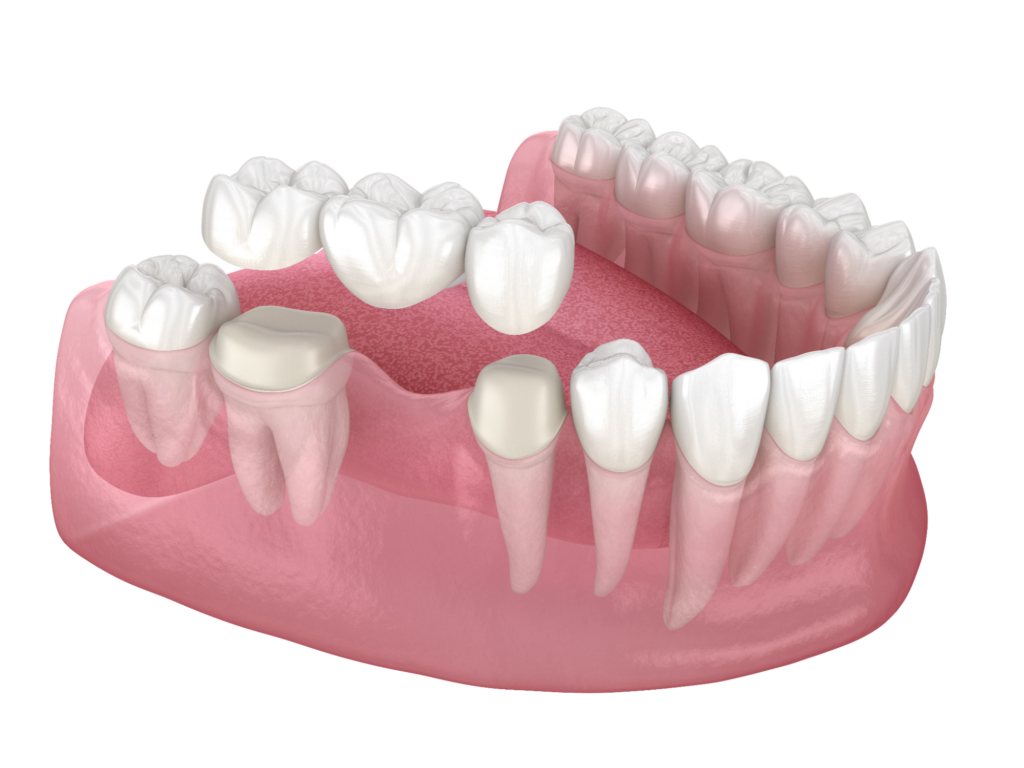Whereas most people are clear on when they need to go to the ER for a medical emergency, the same can’t always be said for dental emergencies. Whether or not a dental problem is an emergency depends on the severity of the problem. To answer what is considered a dental emergency in general, a dental emergency is an injury or condition that causes severe pain, bleeding, or a risk of infection.
What Are Some Common Dental Emergencies?
Dental emergencies can happen at any time, so it’s important to know what is considered a dental emergency. Some common dental emergencies include:
Knocked-Out Teeth
A knocked-out tooth is a dental emergency that requires immediate treatment. If you have the tooth and can get emergency dental treatment within an hour, there is a good chance that the tooth can be re-implanted into the socket. However, losing a tooth from trauma can damage the supporting tissue, nerves, and blood vessels.
Broken Teeth
A shattered or badly cracked tooth is a dental emergency. Fragments from broken teeth can become embedded in the gums and soft tissues and lead to infection if not removed. A break that exposes the nerve endings in the tooth can cause intense pain and require immediate treatment to prevent further damage.
Toothache
An excruciating, continuous toothache is often a symptom of an abscess. An abscessed tooth is a serious infection that needs immediate treatment to prevent the infection from spreading to other parts of your body. Untreated tooth decay can also lead to infection and cause a severe toothache.
Unstoppable Bleeding
Bleeding from the gums, teeth, or mouth can be a sign of various dental problems. In most cases, bleeding occurs during brushing and flossing and stops after a short while. However, if the bleeding is constant and isn’t stopping, it’s considered a dental emergency.
Lost Fillings or Crowns
Losing a filling or crown isn’t always a dental emergency, but it’s best to see your dentist as soon as possible. If a lost filling or crown isn’t replaced, your tooth is left at risk of further damage and infection.
Causes of Dental Emergencies
Dental emergencies are often the result of an accident, such as a fall or sports injury. The upper front teeth are more prone to damage because of their prominent position. Another cause of dental emergencies is dental problems that have been left untreated.
What to Do During a Dental Emergency
If you are experiencing a dental emergency, you should contact your dentist right away. Delaying treatment can lead to further complications and make the problem more difficult to treat. Here’s what to do in the meantime:
What to Do If a Tooth Gets Knocked Out
Rinse the tooth gently in milk if there is any debris, handle the tooth by the crown of the tooth only (avoid touching the root surface)and try to insert it into the socket. Don’t remove any tissue from the tooth. Doing these things increases the chance that the tooth can be successfully replanted. If you can’t reinsert the tooth, put it in a container of milk and get to a dentist right away. Teeth that are re-implanted within an hour have the best chance for long-term success. The Australian Dental Association advises that it’s best to see your dentist within 30 minutes.
What to Do If a Tooth Is Badly Chipped or Broken
If possible, collect any broken tooth pieces and place them in a container with milk. Rinse your mouth with salt water and use a sterile gauze pad to stem any bleeding. Apply a cold compress to the outside of your mouth to reduce pain and swelling and seek emergency dental treatment as soon as possible.
What to Do If You Have a Severe Toothache
Over-the-counter painkillers may provide some relief for a severe toothache, and holding a cold compress to the outside of your face can also help reduce pain and swelling. This will have limited success, so get to a dentist ASAP.
What to Do If You Have Uncontrolled Bleeding from the Mouth
Excessive bleeding from the mouth is often due to trauma to the mouth. If this is the case, you can rinse your mouth with water or a mild saline solution and use a dampened sterile gauze pad to compress the wound to control the bleeding. If the bleeding doesn’t stop, you need to call the ambulance or go directly to the emergency department of your local hospital. This is a life threatening event and dental care is lower on the priority list.
What to Do If You Lose a Filling or Crown
A lost filling or crown doesn’t need an emergency visit, but you should make a dental appointment to resolve the issue. In the meantime, you can take over-the-counter pain medication to help manage any discomfort. You can also use dental wax to cover the area until your appointment.
Summary
To summarise, a dental emergency is a serious issue that requires immediate attention. If you are experiencing any of the following problems, seek emergency dental care as soon as possible:
- Knocked-out teeth
- Badly fractured teeth
- Toothache with fever, swelling, or pain when biting down
In the case of a knocked-out tooth, try to re-implant it or keep it in a container of milk if that’s not possible.
The following conditions aren’t usually considered a dental emergency but require prompt treatment:
- Small chips and fractures
- Mild toothache
- Damage to orthodontics/dental devices
The Dental Family Beaumaris provides emergency dental services in Bayside. If you’re experiencing a dental emergency, please call us on 03 9589 4400.
Read More:


